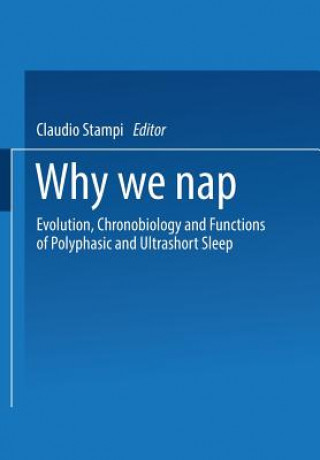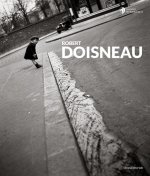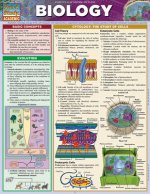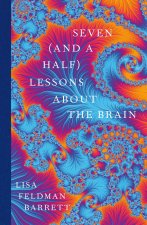
Code: 02745828
Why We Nap
by TAMPI, ROUGHTON
J ÜRGEN AscHOFF "Very bad habit! Very bad habit!" Captain Giles to Joseph Conrad who had taken a siesta. -Conrad: The Shadow Line On the Multiplicity of Rest-Activity Cycles: Some Historical and Conceptual Notes According to its t ... more
- Language:
 English
English - Binding: Paperback
- Number of pages: 280
Publisher: Birkhauser Boston Inc, 2013
- More about this

111.09 €

Low in stock at our supplier
Shipping in 10 - 15 days
Potřebujete více kusů?Máte-li zájem o více kusů, prověřte, prosím, nejprve dostupnost titulu na naši zákaznické podpoře.
Add to wishlist
You might also like
-

100 Portuguese Short Stories for Beginners Learn Portuguese with Stories with Audio
16.86 € -2 % -

Peterson Field Guide to Freshwater Fishes, Second Edition
21.64 € -23 % -

Spectrum Language Arts, Grade 4
11.37 € -21 % -

House of Leaves
23.17 € -23 % -

86 - EIGHTY SIX, Vol. 1 (light novel)
14.12 € -8 % -

Mind Fixers
16.96 € -12 % -

Psychological Types
24.79 € -

Why We Sleep
18.18 € -6 % -

Robert Doisneau
28.15 € -22 % -

Myth of Normal
16.76 € -22 % -

Efficient MySQL Performance
49.49 € -25 % -

Love on the Brain
9.04 € -27 % -

HOW TO SOUND LIKE A NATIVE KOREAN SPEAKER
37.90 € -4 % -

Things We Never Got Over
15.54 € -23 % -

Creative Cyanotype: Techniques and Inspiration
19.30 € -10 % -

Limnology of the Red Lake, Romania
122.07 € -

Angry Blonde
11.37 € -28 % -

HSBA Handbook on Ship Finance
220.56 € -

Marimekko Pencils
10.87 € -18 % -

101 Danish Design Icons
39.23 € -

Usability of Speech Dialog Systems
154.90 € -

This Will Make You Smarter
7.31 € -19 % -

Ubersleep
21.74 € -

Ragnar Axelsson
44.61 € -9 % -

Schwarze Diamanten
10.56 € -26 % -

20000 Lieues Sous Les Mers - Complete
54.07 € -

Das Sozialrecht in der Finanzkrise
26.21 € -

Biografiearbeit mit Männern, m. 1 Beilage
16.46 € -8 %
Give this book as a present today
- Order book and choose Gift Order.
- We will send you book gift voucher at once. You can give it out to anyone.
- Book will be send to donee, nothing more to care about.
More about Why We Nap
You get 277 loyalty points
 Book synopsis
Book synopsis
J ÜRGEN AscHOFF "Very bad habit! Very bad habit!" Captain Giles to Joseph Conrad who had taken a siesta. -Conrad: The Shadow Line On the Multiplicity of Rest-Activity Cycles: Some Historical and Conceptual Notes According to its title this book tries to answer the profound question of why we nap-and why Captain Giles was wrong in blaming Conrad for having napped. However, in this volume the term nap is not used in the narrower sense of an afternoon siesta; instead, emphasis is placed on the recurrent alternation between states of alertness and drowsiness, i. e. , on rest-activity cycles of high er frequency throughout the 24 hr. In view of this focus, two authors (Stampi, in Chapter I, and Ball, in Chapter 3) rightly refer to the psychologist Szymanski who was among the first to describe "polyphasic" activity patterns. Hence, I consider it appropriate to open this foreword with a few historical remarks. At the time when Szymanski (1920) made the distinction between "monophasic" and "polyphasic" rest-activity patterns and sleep-wake cy cles, respectively, not much was known about the mechanisms of such temporal structures. Although the botanists quite some time ago had demonstrated the endogenous nature of the "monophasic" sleep movements in plants, the hypothesis of an (still unknown) external driving force was favored by those who studied rhythms in animals and humans (Aschoff, 1990).
 Book details
Book details
Book category Books in English Mathematics & science Biology, life sciences
111.09 €
- Full title: Why We Nap
- Subtitle: Evolution, Chronobiology, and Functions of Polyphasic and Ultrashort Sleep
- Author: TAMPI, ROUGHTON
- Language:
 English
English - Binding: Paperback
- Number of pages: 280
- EAN: 9781475722123
- ISBN: 1475722125
- ID: 02745828
- Publisher: Birkhauser Boston Inc
- Weight: 535 g
- Dimensions: 244 × 170 × 17 mm
- Date of publishing: 20. November 2013
Trending among others
-

Alan Turing - The Enigma - The Book That Inspired the Film The Imitation Game - Updated Edition
11.07 € -

Behave
21.13 € -5 % -

Behave
28.55 € -22 % -

Biology: A Global Approach, Global Edition
78.87 € -

Biology - A Self-Teaching Guide, Third Edition
20.93 € -20 % -

Blood and Its Third Element
16.86 € -1 % -

Goodness Paradox
16.46 € -22 % -

DESERT WISDOM/AGAVES and CACTI
14.73 € -19 % -

Scent and Chemistry - The Molecular World of Odors
77.55 € -12 % -

Fantastic Fungi
28.55 € -20 % -

Ecology - From Individuals to Ecosystems 5e
65.15 € -4 % -

Biology
131.22 € -

Immortal Life of Henrietta Lacks
16.96 € -

Molecular & Cell Biology For Dummies, 2nd Edition
18.08 € -31 % -

Biology Coloring Workbook, 2nd Edition
20.73 € -20 % -

Cartoon Guide to Biology
17.57 € -18 % -

Bovine Reproduction, 2nd Edition
324.04 € -

Campbell Biology in Focus, Global Edition
91.17 € -

Preparing Dinosaurs
83.95 € -16 % -

Biology
6.70 € -20 % -

Mitochondria and the Future of Medicine
20.42 € -28 % -

Handbook of Biological Illustration
35.77 € -

Extracellular Matrix in Development and Disease
77.95 € -13 % -

Schaum's Outline of Biology, Fifth Edition
38.51 € -12 % -

Oxford IB Diploma Programme: Biology Course Companion
63.42 € -

Oxford IB Study Guides: Biology for the IB Diploma
40.95 € -

Pearson Baccalaureate Biology Higher Level 2nd edition print and ebook bundle for the IB Diploma
91.88 € -

ISE Harper's Illustrated Biochemistry Thirty-First Edition
41.16 € -

Biology for the IB Diploma Study and Revision Guide
41.26 € -

Seven and a Half Lessons About the Brain
16.56 € -22 % -

Oxford IB Diploma Programme: IB Biology Print and Enhanced Online Course Book Pack
108.04 € -

ISE Vertebrates: Comparative Anatomy, Function, Evolution
76.63 € -

A-Level Biology: AQA Year 1 & 2 Complete Revision & Practice with Online Edition
26.52 € -15 % -

DNA
13.41 € -28 % -

Biology For Dummies 3e
17.37 € -28 % -

IB Environmental Systems and Societies Print and Online Pack
127.86 € -

Bioinformatics For Dummies 2e
23.37 € -29 % -

Molecular Ecology, Third Edition
80.70 € -

Ib Biology Online Course Book 2014 Edition: Oxford Ib Diploma Programme
101.74 € -

Dirt
23.98 € -8 % -

Internal Assessment for Biology for the IB Diploma
37.70 € -

Biophilia
31.30 € -17 % -

Genius of Birds
16.46 € -15 % -

ISE Vander's Human Physiology
77.44 € -

Microbiology & Infectious Diseases Flashcards, Third Edition
53.56 € -5 % -

Biology for the IB MYP 4 & 5
49.59 € -4 % -

A-Level Biology: AQA Year 1 & AS Exam Practice Workbook - includes Answers
7.51 € -15 % -

Hacking Darwin
23.47 € -13 % -

Growth of Biological Thought
50.30 €
Collection points Bratislava a 2642 dalších
Copyright ©2008-24 najlacnejsie-knihy.sk All rights reservedPrivacyCookies


 15549 collection points
15549 collection points Delivery 2.99 €
Delivery 2.99 € 02/210 210 99 (8-15.30h)
02/210 210 99 (8-15.30h)